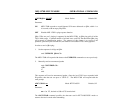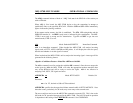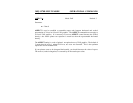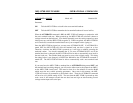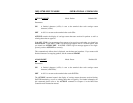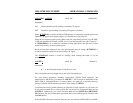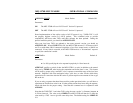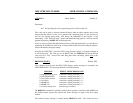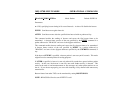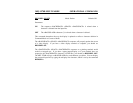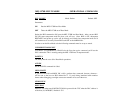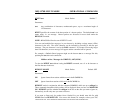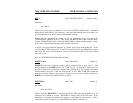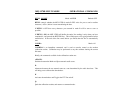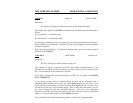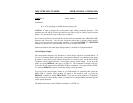
MFJ-1278B MULTI-MODE OPERATIONAL COMMANDS
BEACON EVERY|AFTER n Mode: Packet Default: EVERY 0
Parameters:
n 0-250, specifying beacon timing in 10 second intervals. A value of 0 disables the beacon.
EVERY Send beacon at regular intervals.
AFTER Send beacon once after the specified time interval with no packet activity.
This command enables the sending of beacons and causes the first beacon frame to be
transmitted. A beacon frame consists of the text specified by the BTEXT command in a
packet addressed to "BEACON" and sent via the digipeat addresses.
This command enables beacon sending and causes the first beacon frame to be transmitted.
A beacon frame consists of the text specified by BTEXT in a packet addressed to
"BEACON" and sent via the digipeat addresses specified by the UNPROTO command, if
any.
If the keyword EVERY is specified, a beacon packet is sent every n*10 seconds. This mode
might be used to transmit packets for testing purposes.
If AFTER is specified, a beacon is sent only after n*10 seconds have passed with no packet
activity. In this case, the beacon is sent only once until further activity is detected. This
mode can be used to send announcements or test messages only when packet stations are on
the air. If you choose n properly you can avoid cluttering a busy channel with unnecessary
transmissions.
Beacon frames from other TNCs can be monitored by setting MONITOR ON.
NOTE: BEACONS will not be sent if BTEXT is null.



